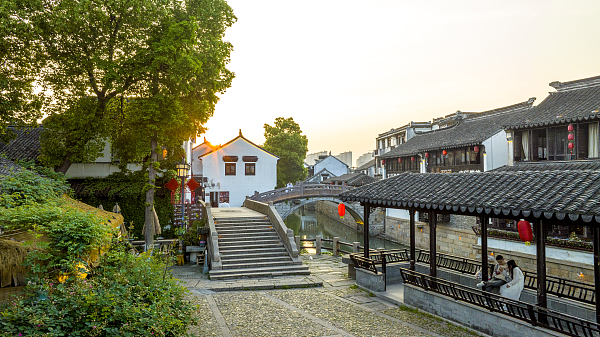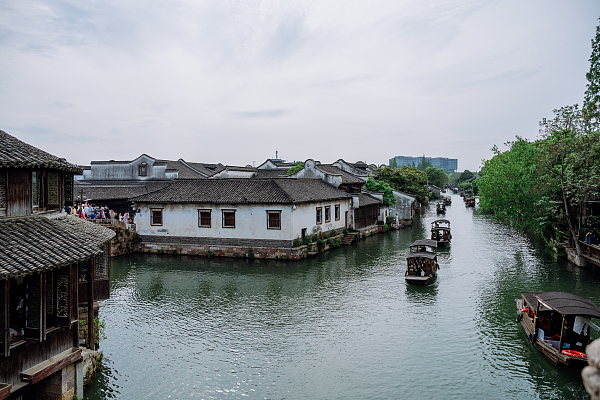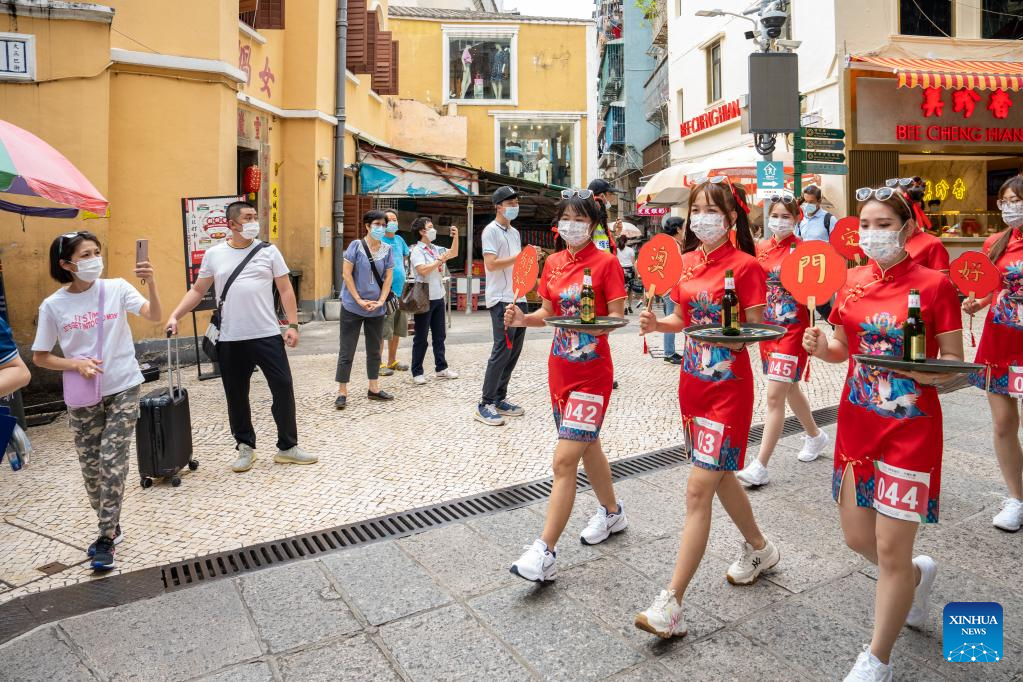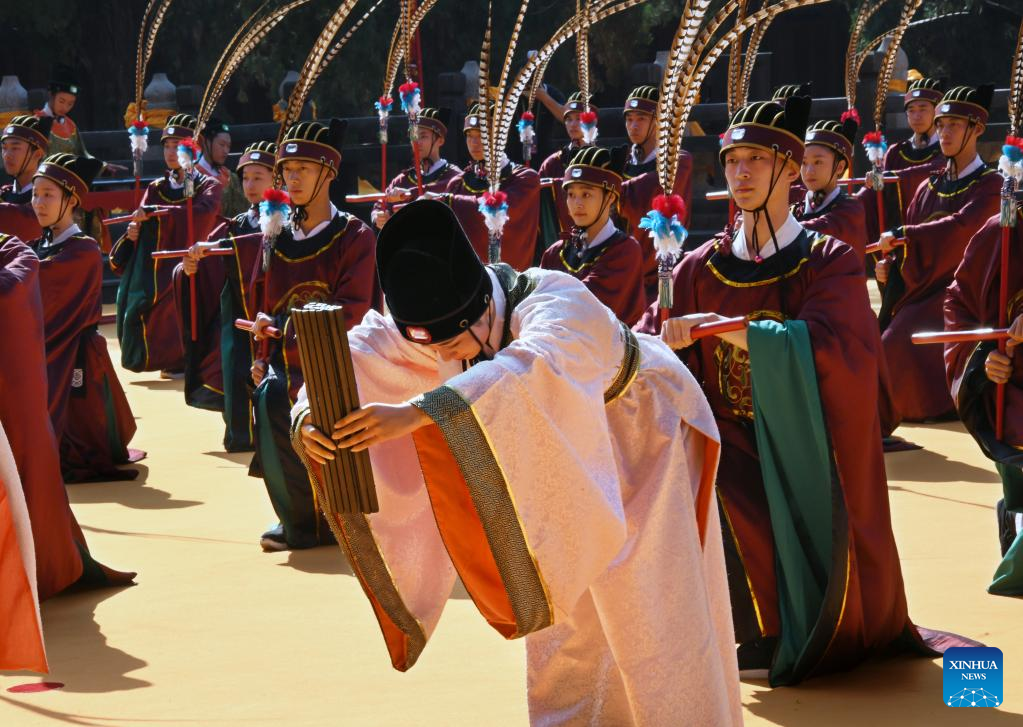
Luzhi town in Suzhou (CFP Photo)
Ancient towns in the Yangtze River Delta region have experienced a surge in visitors as domestic tourism gradually recovers.
The region is home to over 25% of China’s famous historical and cultural towns. Among the over 2,000 comments on Ctrip.com, a leading Chinese online travel platform, the delta was frequently praised for its “sceneries, architecture and performances."
In the May Day holiday from May 1 to 5, Luzhi town in Suzhou sold out its night tours tickets, and Xinshi town in Deqing County of Zhejiang Province recorded a growth of 201.5% year-on-year in tourist volume compared to the same holiday in 2019. Jiuzi town in Anhui Province offered nearly 30 programmes, including martial arts, opera, dance, parades and "iron flowers" (a folk-art performance of throwing molten iron to create fireworks), with over 100 shows daily.

Wuzhen, Zhejiang Province
In Wuzhen, Zhejiang Province, tourists can visit the market, watch sitcom shows, participate in sightseeing trips by boat, try craft workshops, taste local food, or engage in treasure hunting activities with children. However, most people are attracted by the unique architecture, such as the black tiles and white walls, small bridges above the flowing streams.
Ancient towns have drawn the attention of young people because they provide a perfect setting for taking great photos. Travel platforms offer all kinds of information about photography, such as the best location, posing styles, camera setups, and dressing choices. These destinations have also seen an increase in people taking photos while wearing the new style of China-chic clothes.
Furthermore, ancient towns become attractive for their slow-paced lifestyles. A visitor commented online that it feels good to feel the calm and leisure simply by sitting in the ancient town for a day.
However, ancient town tourism are facing criticism from various perspectives. Some have called for a stricter visitor number control because it is impossible to explore heritage buildings when it’s crowded. Others are unhappy with the over-commercialization of these venues and argue that travel should not resemble shopping. There are also concerns about insufficient public services that affect cultural preservation and visiting experiences.




















